 What makes a person happy at home and successful in business? Until recently, most psychologists were hard pressed to provide any answer. This is because most of their research has traditionally focused on what makes people miserable, not happy.
What makes a person happy at home and successful in business? Until recently, most psychologists were hard pressed to provide any answer. This is because most of their research has traditionally focused on what makes people miserable, not happy.
Several years ago, The Washington Post ran a story about a movement in the mental health field called “positive psychology.”
Examining what makes people happy, instead of unhappy has generated substantial research about the traits and behaviors associated with happiness.
As you might expect, the research also indicates that happy people feel successful in their personal and business lives.
“Happiness in work and in leisure activity correlates to what is called the ‘Flow’ experience.”
David Myers, author of, The Pursuit of Happiness: Discovering the Pathway to Fulfillment, Well-Being, and Enduring Personal Joy, has identified two key traits that all happy and successful people possess: Self-Esteem and Close Relationships.
Again on the topic of happiness, University of Chicago psychologist Mihaly Csikszentmihaly says that happiness in work and in leisure activity correlates to what he calls the “Flow” experience. His research has shown that engaging in a task that challenges you, without overwhelming you, increases your quality of life. In other words, going through positive motions affects your emotions.
My own research and experience (sometimes I think I have a PhD from the School of Hard Knocks!) indicates that when self-esteem, close relationships, and “flow” all become part of your personal blueprint, you will discover new horizons and identify untapped potential. But most importantly, you will discover the joy of being paid to do the work you love. How do you begin?
To help you discover personal happiness and business success, I recommend a three-step framework I developed: Reflection, Relationships and Rapport.
Step 1 – Reflection
I once had a mentor who said to me, “Gabriel, if you want me to help you, please tell me who you are and what you want. If you think these are two simple questions; keep in mind that most people spend their entire lifetime never coming up with an answer!”
Why is it so many people don’t know who they are, or what they want out of life, their career and business? It’s because they don’t spend enough time using their imagination and being creative. These two activities lead to self-understanding.
Think about the joy you feel and experience when you bring something new into existence. The parental joy we feel at the birth of a child is an example. Anything that is our own creation-from baking big chocolate layer cake to writing a 32-page proposal- evokes an emotion that’s very satisfying.
Everyone has the power of imagination and creative talent. For some people this is highly developed and we can see the results in new songs, works of art, great novels, new inventions, new business ventures and so on.
For the majority of us this potential is within us, but lies dormant and untapped. How do we tap into this creativity we all possess?
Psychologists have studied creative people and companies who develop creative products, and have discovered that creative things frequently appear after periods of relaxed concentration, or in other words, Reflection.
But the typical person’s day is not conducive to reflection. It begins and ends with hardly a quiet moment of peace and solitude. We wake up to an alarm, listen to the radio while we shower and get ready for work. We listen to music or the news on our way to work.
At work we are on the telephone, attending meetings, or working on some task. At the end of the workday, we drive home listening to the radio while cursing our fellow drivers. We get home, take care of dinner, clean up, pay bills and slump into a chair to relax. And relaxing, while necessary, is not reflecting or concentrating!
Dr. Robert Anthony, a prominent psychologist, lecturer, and author says that the first step to really understanding what you want in life is by dreaming and listening to the inner voice we have in all of us, instead of seeking answers from others. You can only do this if you spend at least several minutes a day in quiet reflection. Try it! What have you got to lose?
Step 2 – Relationships
Here’s one of my favorite quotes from Joseph Campbell:
“If you do follow your bliss, you put yourself on a kind of track that has been there all the while, waiting for you, and the life you ought to be living is the one you are living. When you can see that, you begin to meet people who are in the field of your bliss, and they open doors to you. I say, Follow your bliss and don’t be afraid, and doors will open where you didn’t know they were going to be.”
As I said, reflection helps us tap into our imagination and allow us to more readily create a personal blueprint for ourselves. And when you have a clearer picture of who you are, and what you want, people suddenly appear to help you achieve your personal and business blueprint.
What distinguishes happy and successful people from the rest is how they are able to turn what others view as mere acquaintances, or work colleagues, into close personal and business relationships.
Now, of course, not everyone you meet will offer a close relationship like the kind I’m talking about. However, if you have a laser-like focus on who you are, and what you want, the most people who come into your life will deserve your closer examination and nurturing. That’s were Rapport comes in.
Step 3 – Rapport
Dale Carnegie is quoted as saying that dealing with people is probably the biggest problem you face, especially if you are in business. I believe it’s true regardless of your business position or station in life.
How important is dealing with people? Studies conducted by the Carnigie Institute of Technology show that in such technical professions as engineering, about 15 percent of a person’s financial success is due to his or her technical knowledge. And the rest, a whopping 85 percent, is due to skill in human engineering: how you deal with people. The same statistics hold true in other professions, too.
The key to dealing with people is your ability to establish Rapport.
What’s rapport? Rapport is the ability to establish trusting and meaningful relationships with those who can help you achieve your personal and business blueprint. Think about the people you have trusting and meaningful relationships with. What characterizes the relationship? That’s rapport.
One of the best references for how to establish rapport is the classic book, How to Win Friends and Influence People, by Dale Carnegie. I suggest you read it if you haven’t already.
Reflection, Relationship, and Rapport – I have been told that my three-step framework is common sense. Sure, but so are most sound and useful ideas! Is there anything simpler than the Golden Rule, for instance?
Try the three-step framework. Put some of it in practice now! You’ll start seeing results, I guarantee it!
For the month of August, Najera Consulting Group will be conducting Free 1 Hour Strategy Sessions for a limited number of owners of small to medium sized businesses and non-profit executive directors.
Schedule Your Session Today and:
• Gain better clarity of your organization’s vision.
• Uncover hidden challenges and blind spots that could be sabotaging your success
• Leave this session renewed, inspired, and re-energized about your business or non-profit.
Space is Limited. Click here to contact us with the subject line, “Free Strategy Session” or call: 630-326-3238
 About the Author:
About the Author:
Gabriel Najera is the president & founder of the Najera Consulting Group. Gabriel is a frequent speaker to organizations. And, is a highly sought after advisor to corporate and nonprofit executives looking to develop a strategic thinking mindset.
Gabriel is the author of the forthcoming book, Lessons From the Field: From Farmworker to Fortune 500 Consultant. Gabriel is available to speak to your organization. To inquire about scheduling Gabriel for an upcoming speaking engagement or to inquire about our consulting services, please click on this link.
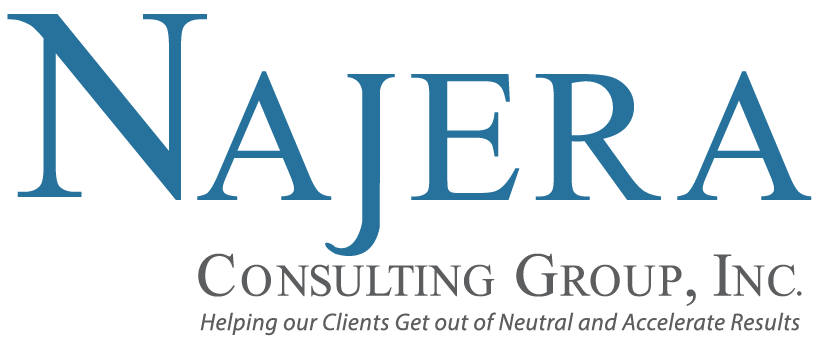
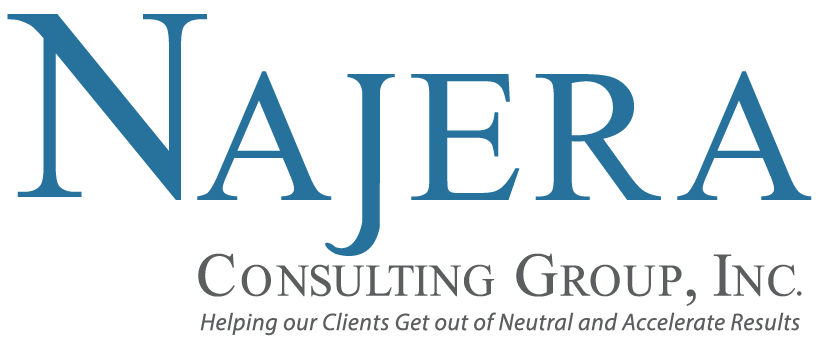




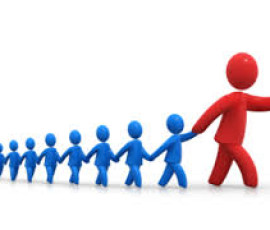


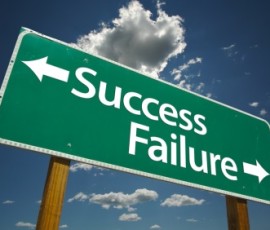



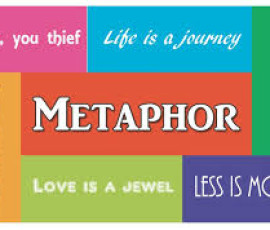


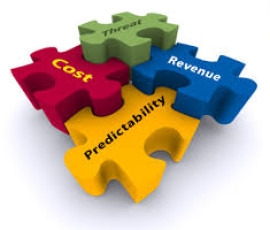
Sorry, the comment form is closed at this time.